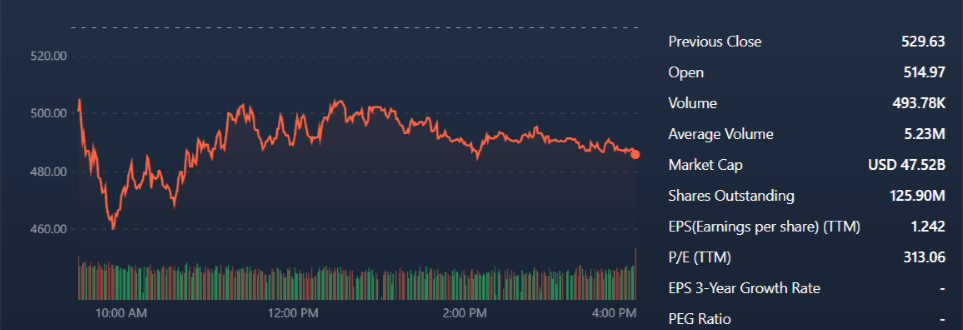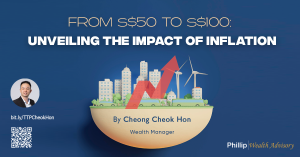Is the future of the e-commerce sector still bright? May 27, 2022

The recent relaxation of COVID19 restrictions worldwide, has led to increased demand and inflation. However, demand for e-commerce platforms has inversed, resulting in a dive. The e-commerce, or electric commerce, industry has experienced its biggest surge in the pandemic stricken era of mid-2020, but the easing of pandemic rules has dealt a severe blow to the sector.
This article will discuss:
- The e-commerce industry’s current down period
- American e-commerce stores and platforms, post Q1 2022 and the comparison with their Southeast Asian counterparts
- E-commerce stock trading opportunities
2020 experienced an unprecedented crisis– a global pandemic which plagued most industries and resulted in the rapid expansion of the e-commerce industry.
As online shopping became a necessity, e-commerce became one of the safest bets on the stock exchanges.
However, it seems that the expansive growth of e-commerce is coming to a halt. The easing of COVID-19 restrictions in most countries has driven the demand for physical retail stores despite cheaper online offers, making it evident that consumers are desperate for a lifestyle change.
The bleak prospects of the e-commerce industry have been intensified recently by delayed supply chain amid the Russia-Ukraine war, and sky-high inflation.
Analysts believe that there will be no turnaround for the industry anytime soon, as they feel it is unlikely that the e-commerce industry will experience a boom again.
However, the sector may still be a good investment opportunity when the prices rise again. The opening bell on 6 May 2022 signaled steep drops for even the strongest of e-commerce giants. Etsy (NASDAQ: ETSY), an online arts-and-crafts store, fell almost 18% on 5 May 2022. Amazon (NASDAQ: AMZN), which has been steadily dropping since mid-April, saw a disappointing 7% growth in Q1 2022, compared to its 44% growth in the same period last year1. This has been the slowest growth period for Amazon in nearly 21 years, though Amazon’s Web Service (AWS) continues to generate high levels of revenue, it was not enough to offset the losses.

Fig 1. Shopify shares on May 6 2022
Canada-based e-commerce platform Shopify (NYSE:SHOP) missed forecasts significantly as it announced its Q1 2022 earnings, with only 20 cents per share reported against the expected 77 cents per share. Its shares saw a significant dip following the announcement, and the downward trend continued on May 6 (Refer to Fig 1).
However, Shopify’s latest and so far, biggest USD2.1 billion acquisition might offer a ray of hope for those looking to buy or hold the counter.: The company aims to streamline its logistics and delivery with its acquisition of Deliverr, which began as an e-commerce fulfilment start-up2.
In comparison, dominant e-commerce companies in Singapore, Southeast Asia and China saw slower drops. Though Shopee (NYSE: SE) has been steadily sliding, it has yet to experience a significant crunch with investors, since trade volumes have remained fairly consistent.
However, the earnings report of Sea Limited, Shopee’s owner, for Q1 2022 on 17 May has certainly helped in taking the first steps towards reversing this trend. Sea Limited reported better than expected figures in its quarterly report, causing a sharp hike in its stock3.
Alibaba (NYSE: BABA), China’s primary e-commerce platform, suffered a sharp 6.6% decline over 5-6 May 2022.
The detention of a man named ‘Ma’, who shares founder Jack Ma’s name was pointed as the cause of this, with the stock recovering after a clarification was issued.
With China’s lockdown on Shanghai and Beijing, it seems more than likely that people will turn to Alibaba-owned e-commerce stores Taobao and T-Mall for their retail needs.
The e-commerce industry has changed from a safe haven to a rocky terrain with the easing of COVID-19 restrictions.
In the US, the sector is experiencing a two-year low, but since the companies are expected to recover in the long-term, investors can take this as a buying opportunity to expand their portfolio in the e-commerce sector.
Across the globe, the e-commerce industry is waiting on bated breath to see how the Q1 2022 earnings and China’s COVID-19 policy will affect the economy.

Take this opportunity to expand your trading portfolio with our wide range of products including Stocks, CFDs, ETFs, Unit Trusts and more across 15 global exchanges available for you anytime and anywhere. Elevate your trading experience with our POEMS Mobile 3 App! Keep up with daily financial news on our Telegram channel or read more articles from our market journals here.
Reference:
- [1]https://www.msn.com/en-us/money/topstocks/amazon-30-25-stock-plunge-this-year-signals-e-commerce-boom-is-over/ar-AAX3Rqi?ocid=BingNewsSearch
- [2]https://www.investors.com/news/technology/shopify-stock-shopify-earnings-news-acquisition-deliverr-q1/
- [3]https://www.sea.com/investor/quarterlyresults
Disclaimer
These commentaries are intended for general circulation. It does not have regard to the specific investment objectives, financial situation and particular needs of any person who may receive this document. Accordingly, no warranty whatsoever is given and no liability whatsoever is accepted for any loss arising whether directly or indirectly as a result of any person acting based on this information. Opinions expressed in these commentaries are subject to change without notice. Investments are subject to investment risks including the possible loss of the principal amount invested. The value of the units and the income from them may fall as well as rise. Past performance figures as well as any projection or forecast used in these commentaries are not necessarily indicative of future or likely performance. Phillip Securities Pte Ltd (PSPL), its directors, connected persons or employees may from time to time have an interest in the financial instruments mentioned in these commentaries. Investors may wish to seek advice from a financial adviser before investing. In the event that investors choose not to seek advice from a financial adviser, they should consider whether the investment is suitable for them.
The information contained in these commentaries has been obtained from public sources which PSPL has no reason to believe are unreliable and any analysis, forecasts, projections, expectations and opinions (collectively the “Research”) contained in these commentaries are based on such information and are expressions of belief only. PSPL has not verified this information and no representation or warranty, express or implied, is made that such information or Research is accurate, complete or verified or should be relied upon as such. Any such information or Research contained in these commentaries are subject to change, and PSPL shall not have any responsibility to maintain the information or Research made available or to supply any corrections, updates or releases in connection therewith. In no event will PSPL be liable for any special, indirect, incidental or consequential damages which may be incurred from the use of the information or Research made available, even if it has been advised of the possibility of such damages. The companies and their employees mentioned in these commentaries cannot be held liable for any errors, inaccuracies and/or omissions howsoever caused. Any opinion or advice herein is made on a general basis and is subject to change without notice. The information provided in these commentaries may contain optimistic statements regarding future events or future financial performance of countries, markets or companies. You must make your own financial assessment of the relevance, accuracy and adequacy of the information provided in these commentaries.
Views and any strategies described in these commentaries may not be suitable for all investors. Opinions expressed herein may differ from the opinions expressed by other units of PSPL or its connected persons and associates. Any reference to or discussion of investment products or commodities in these commentaries is purely for illustrative purposes only and must not be construed as a recommendation, an offer or solicitation for the subscription, purchase or sale of the investment products or commodities mentioned.
About the author
Shamir Thair
Shamir Thair is a Content and Community Executive with the POEMS team.

 Predicting Trend Reversals with Candlestick Patterns for Beginners
Predicting Trend Reversals with Candlestick Patterns for Beginners  Back in Business: The Return of IPOs & Top Traded Counters in March 2024
Back in Business: The Return of IPOs & Top Traded Counters in March 2024  From $50 to $100: Unveiling the Impact of Inflation
From $50 to $100: Unveiling the Impact of Inflation  Japan’s Economic Resurgence: Unveiling the Tailwinds Behind Nikkei 225’s Record Leap
Japan’s Economic Resurgence: Unveiling the Tailwinds Behind Nikkei 225’s Record Leap 









